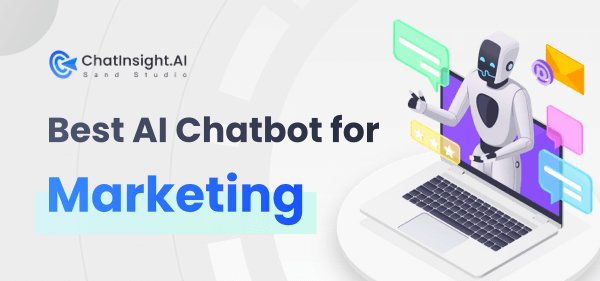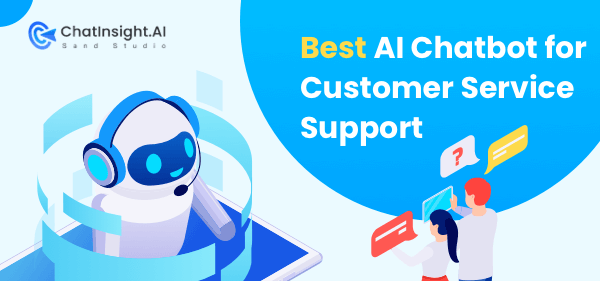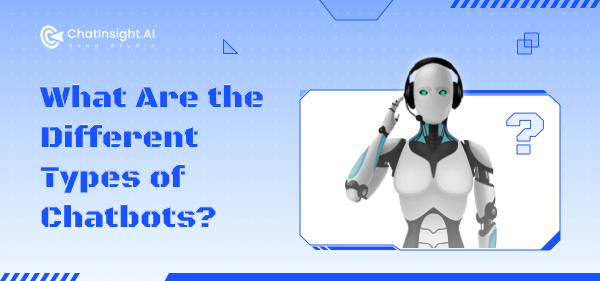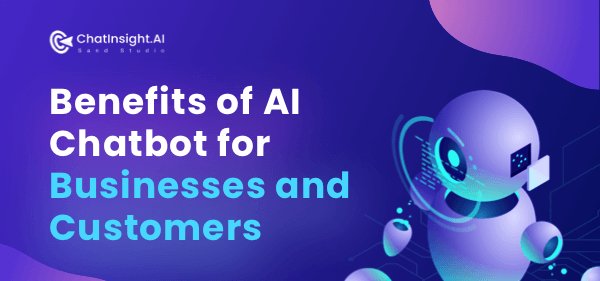Ultimate Guide to Conversational AI in Healthcare
AI Conversation is the first revolution in this new era. Healthcare has advanced and this progress means that patients can access better healthcare services. We had to improve our communication in healthcare and we did so now. Nevertheless, due to easy conversations, physicians are able to see more patients without making it uncomfortable for them during the visit as well. Instead, digital technology has further individualized itself for patients across different health system by integrating conversation AI into them which changes entirely how the services are offered or practiced in these institutions.
- 1. What is Conversational AI in Healthcare?
- 2. How Does Conversational AI Work in Healthcare?
- 3. Types of Conversational AI Used in Healthcare
- 4. Applications and Use Cases of Conversational AI in Healthcare
- 5. Benefits of Conversational AI in Healthcare
- 6. The Potential of Conversational AI in Healthcare
1What is Conversational AI in Healthcare?
When it comes to health, people may argue that nothing is better for it. The technology used for medical purposes is the type that depends on virtual assistants, chatbots, and voice-enabled devices.
This tool type has natural language processing (NLP) which understands someone’s words as much as a human being does. That is to say; they help patients and providers articulate their issues.
Since we introduced conversational AI into healthcare systems, many people can easily get what they want. Hence all individuals can independently manage their health programs without any obstacles.
Again, making an appointment with your doctor or primary care provider could be simple such as this. Just talk to your Chatbot powered by AI and never make any phone calls!
At the same time, it was a simplification for administrative staffs in hospitals. Thus, regardless of whoever you may be this new way of accessing healthcare has something for everyone.
But possibly the most amazing thing about conversational AI is how it can diagnose symptoms even before a patient enters her hospital or clinic door.
How many times have you gone somewhere only to hear them say there’s nothing wrong? However, through this tech patients are told whether they need a doctor or not before wasting precious time speaking to one.
Moreover, what’s greater about these systems is that they learn more every day! Therefore, no matter whatever happened so long as we don’t stop using them, we will always benefit from them.
2How Does Conversational AI Work in Healthcare?
In other words, conversational AI is state-of-the-art. The approach combines a number of AI technologies to make meaning out of patients’ symptoms and respond accordingly.
However, how does it work? So, you just write your signs and then IT will apply NLP in order to determine what they imply. It thereafter appraises the data using its already acquired medical knowledge, and suggests possible culprits and actions such as “see a doctor.”
Indeed, there are various ways it is used in real life although all of them are impactful advances on our health care systems nowadays. For instance, chatbots can perform initial symptom triage by comparing patients’ self- reported symptoms with thousands of medical cases that have never been encountered before.
Nevertheless, besides being diagnostic, these are also administrators! And this can be as easy as scheduling appointments or reminding people about them. As such, they go further into ensuring that you have the necessary things for this visit too. Hence their duties encompass directing patients through pre-appointment procedures e.g., pricking fingers to draw a few drops for tests or perhaps collating vital documents ahead of going to see doctors.
Other roles these technologies play include answering common queries around but not limited to health issues and furnishing comfort whenever emotions run high. People could find anything concerning them had become considerably easier no matter from which part of the world they might have originated. And assistances like these quick responses contribute towards better overall patient engagement and satisfaction while boosting efficiency naturally too.
When we think about how much better it has made our present healthcare systems by streamlining processes AS WELL AS enriching patient care experiences… Oh! No wonder why there is now an increased interest in conversational AI in healthcare today.
3Types of Conversational AI Used in Healthcare
Immediate Replies for Patient Queries: The health assistants or chatbots powered by AI enable the patients to get immediate replies for their queries. These questions can be as simple as asking about symptoms only, or tips for healthy living and so on. This can help the hospital in focusing on more important areas. They cannot answer medical questions at present but it will improve over time.
Integration of IVR and Voice Recognition Systems: Why were IVR systems and voice recognition systems not merged into one during earlier times of modern healthcare communication? Typing is painful! We are almost in a world where we don’t have to type because there won’t even be screen buttons that need pressure–just talk and let the system do nearly everything! For instance, instead of saying “press one” it could be “the surgery department”. On top of improving accessibility, these tools reduce data entry work while enhancing input accuracy of patient details since everyone is not really good at fast typing as well as general clicking of buttons.
Automation of Patient Communication: AI-powered patient communication tools are quite easy to explain: automate some things like booking appointments, sending them reminders through other messaging platforms such as SMSs or emails and assisting doctors who would otherwise never follow up with anything but themselves being busy all the time! In conclusion, it ensures steady information flow.
4Applications and Use Cases of Conversational AI in Healthcare
AI chatbot health support is regarded as a great innovation in patient care because communication and connection are the major driver of the doctor-patient relationships. A 24/7 patient support mechanism that answers questions, provides health information, and offers a shoulder to lean on for patients is necessary.
For example, transforming some aspects of healthcare as appointment setting up and reminders would be very helpful. Alas! The effect of AI Chatbots on these two other areas can be summarized thus: they do it better by always making instant mistakes while booking an appointment without any problems sending a reminder to make sure a patient turns up – which powerfully distinguishes between acute (short-term) and chronic (long-term) ones.
Sometimes early detection can save lives– good conversational AI tools do this by checking symptoms and if possible, giving diagnosis based on what had been reported by patients. This allows them to know whether they should rush into seeing their doctor immediately or take some more time before deciding anything at all.
Additionally, conversational AI can give personalized advice about people’s health; leading to more effective interventions through lifestyle counseling tailored specifically for each patient.
I mean REALLY EASY! The point is that now anyone who could not get expert psychological guidance/emotional help may have a chance to speak with the specialist from any place of earth ever at any time of day or night even when we know some awful thoughts may come into our mind. In fact, instead of trying hard to solve an increasing need for mental health services, there should be confidential/immediate assistance offered which we sought long ago but futilely tried working out
5Benefits of Conversational AI in Healthcare
The key benefit of employing chatbots in healthcare is that the overall experience for patients has become easier and more convenient. Quick and personal engagements make people feel appreciated, esteemed and reliable; hence they can trust that their health care provider actually listens to them. When one is helped, he feels secure in being trusted therefore making him want to get involved actively in self-care.
Busy schedules in a medical setting often have doctors spending too much time on tasks not related to direct patient care including administration. This entails automating processes such as scheduling appointments or typing in patient details so that those working within the health field can have more time for other things.
Before now conversational AI was integrated into medical services; it had become possible for doctors to be provided with faster results on a patient’s condition than ever before because of machine learning ability to process big data. Having precise information on hand enables doctors to either choose better or act fast thus leading to improved outcomes for all who require such.
Conversational AI has indeed brought down costs when put into medical services! Once again, automation helps by removing inefficiencies as well as overhead expenses linked directly with manual administrative activities like filling out forms or going through phone books manually just to book appointments; which are associated with old ways of doing things. Merely foregoing these two aspects alone will help distribute resources more prudently giving cheaper access during needful times while maintaining quality at the same level!
6The Potential of Conversational AI in Healthcare
As for Conversational AI in healthcare, the prospects are great. Always, technology will have a way of going beyond our imagination. One of the things that amaze me in life is the progress made in NLP. Even with our present AI systems however, they can’t understand complex medical language and patient interaction – by the way there are other things that likewise sucker as well? However, once a better NLP system comes around! Can you just think about it asking your device about any health problem and getting relevant feedback? It sounds amazing.
Wait till you read this: Predictive Analytics driven by AI will be coupled with conversational AI for healthcare. This allows providers to see where health care is headed and predict those outcomes ahead of time so they can respond sooner! In essence, when we talk about looking into the future, But what if someone has been identified as being at high risk of chronic disease or hospital readmission? Before then there would already have been signs hence more time could have been used to intervene at or even avoid them altogether.
Then another one of those impossibilities until spoken by them—Conversational AI managing patient care pathways starting from diagnosis up until follow-up stages. “However, “managing” does not mean providing information; Rather it is guiding you let you know how to develop specific treatments Plans tailor-made for different patients’ conditions!” It examines your family genes and your individual habits as well as surroundings making some personally suggested treatment options like never before.AI mixed up with personalized healthcare means something big is coming!
Conclusion
Adding conversational AI in healthcare peels back another layer towards a better system as a whole. The ability to transform patient care and operations alone makes its potential infinite. There’re only new and better things coming its way.







Leave a Reply.